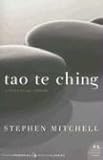 In like manner the effect of every action is measured by the depth of the sentiment from which it proceeds. The great man knew not that he was great. It took a century or two for that fact to appear. What he did, he did because he must; it was the most natural thing in the world, and grew out of the circumstances of the moment. But now, every thing he did, even to the lifting of his finger or the eating of bread, looks large, all-related, and is called an institution.
In like manner the effect of every action is measured by the depth of the sentiment from which it proceeds. The great man knew not that he was great. It took a century or two for that fact to appear. What he did, he did because he must; it was the most natural thing in the world, and grew out of the circumstances of the moment. But now, every thing he did, even to the lifting of his finger or the eating of bread, looks large, all-related, and is called an institution.
These are the demonstrations in a few particulars of the genius of nature; they show the direction of the stream. But the stream is blood; every drop is alive. Truth has not single victories; all things are its organs, — not only dust and stones, but errors and lies. The laws of disease, physicians say, are as beautiful as the laws of health. Our philosophy is affirmative, and readily accepts the testimony of negative facts, as every shadow points to the sun. By a divine necessity, every fact in nature is constrained to offer its testimony.














































Your Comments on Tolle
Spoken like a true Aristotelian.